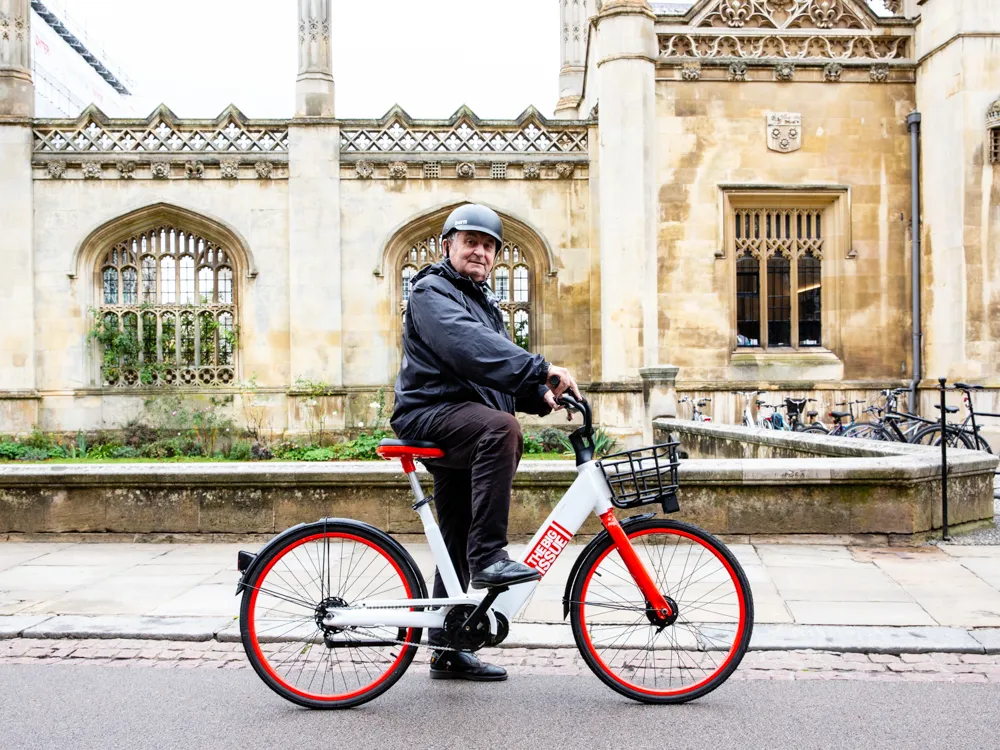
UK newspaper The Big Issue has teamed up with ShareBike to launch an electric bike-share scheme aimed at providing sustainable mobility options while also creating jobs.
The Big Issue launched in 1991 to help tackle homelessness in London by providing those sleeping rough with an opportunity to earn an income from selling the magazine to the public.
It has since gone global through a series of sister titles in Australia, South Africa, Japan, Taiwan and Korea.
The new scheme – which will be run by people who were previously unemployed – will be rolled out across the UK in the new year.
Lord John Bird, founder of The Big Issue, sampled one of the ebikes in the city of Cambridge, UK, in an effort to call on councils and businesses to take up the scheme.
He says: “We are living through some dark times, with predications that hundreds of thousands of people could lose their jobs and be made homeless. It’s been wonderful to come together with a like-minded organisation with a truly innovative venture that offers hope to those facing great adversity due to Covid-related poverty.”
“We are confident that The Big Issue e-bikes scheme will recruit and retrain unemployed and vulnerable people in local communities and provide them with access to support and services to improve their lives,” Bird adds.
Jan Tore Endresen, chief executive of ShareBike, says: “With more than 20 years’ experience in global bike-sharing we have ensured that Big Issue e-bikes offer a comfortable and convenient alternative to fossil fuel-based transportation, as well as providing an affordable mode of travelling around cities in the UK.”
The scheme is part of The Big Issue Ride Out Recession Alliance, which seeks to keep people in work.










